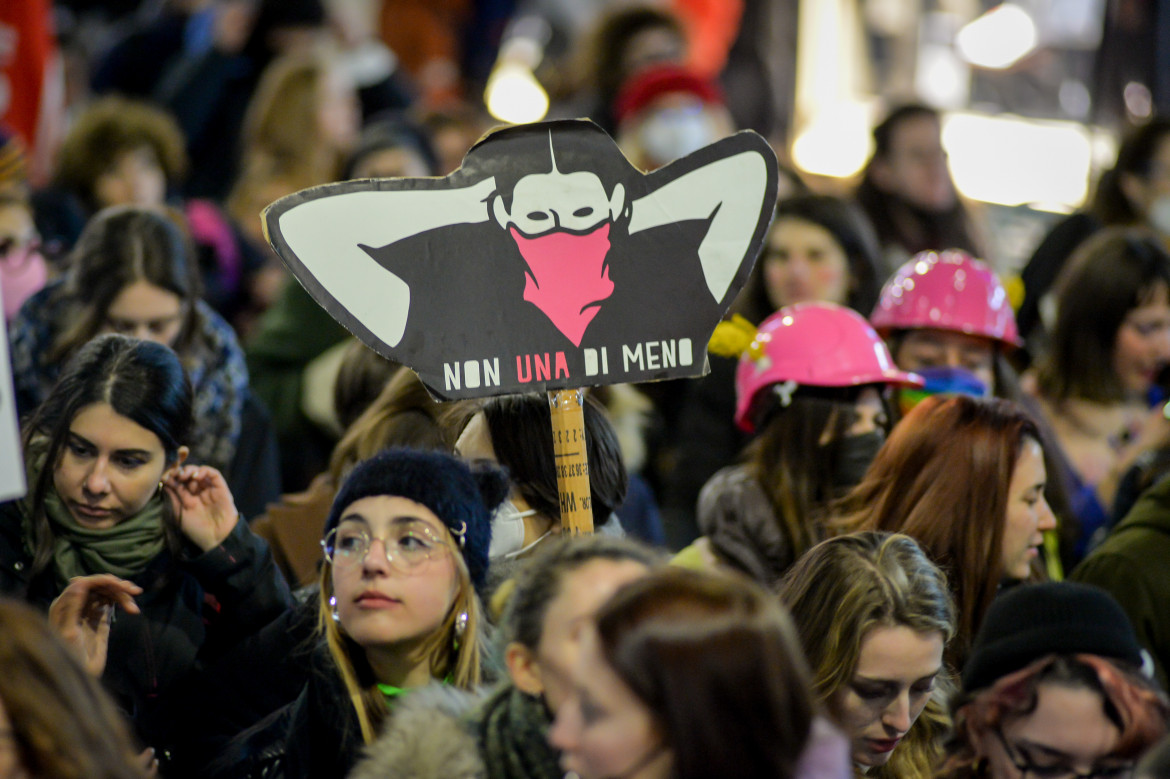Interview
Sandra Burchi on Non Una di Meno: ‘There is no longer only one way to strike’
Sandra Burchi, feminist, researcher and author of ‘Starting Over from Home’ spoke with us on the creative strikes taking place in Italy. ‘Non Una di Meno talks about striking from consumption, from housework, or even dressing a certain way when it is not really possible to refrain from work. And one can also strike from gender as such.'

We spoke with Sandra Burchi, feminist and scholar, author of Ripartire da casa. Lavori e reti dallo spazio domestico (“Starting Over from Home. Work and Networks from the Domestic Space,” ed. Franco Angeli), among other works.
Today, the transfeminist movement Non Una di Meno is organizing a strike in productive and social reproduction labor. What does this mean?
It means putting back together two parts of labor that are usually seen as separate, even though they don’t only concern women, they concern everyone. It means joining traditional labor with a whole other set of invisibilized labor. It means extending the idea of labor to everything we need in order to live. It means changing the meaning of the concept of “labor” to include the “emotional labor” through which we resist against our lives being made precarious, against heavy and also subtle forms of exploitation. Here, labor is the effort to overcome daily suffering and sadness, the sense of insecurity. The feminist turn is thus repeated in another context and extended with a global scope.
Women are the most precarious category and the least employed in Italy. In the absence of steady employment, it is difficult to conduct a strike, at least in the known forms. Are there other ways?
This is the problem that Non Una di Meno has taken head-on. The beauty of today’s strike is that it is conceived as a creative process. There is no longer only one way to strike. New forms have to be created. No practice, old or new, is overlooked. Non Una di Meno talks about striking from consumption, from housework, or even dressing a certain way when it is not really possible to refrain from work. One can join in the strike by participating in the demonstrations today. And one can also strike from gender as such.
What does that mean?
We can distance ourselves from gender expectations, that is, from those things that we are expected to do based on our socially recognized, prescribed or assigned gender. This is truly an important political moment. Here, the strike reveals its meaning of liberation and discovery. As of today, I can discover that I am locked inside a box that I don’t particularly desire to be in anymore, and I question it, I move beyond it.
Is the demand for a “self-determination income” included in the strike platform a response to the transformation of the “citizenship income” into an even more restricted “active inclusion measure” (MIA)?
Certainly. And it is a challenge to the division between those who are deemed “employable” and those who are very poor. This is an artificial distinction. We know that 48 percent of citizenship income recipients are working poor. We also know that the working poor are not that way just because they are doing unskilled work. In a region like Tuscany, where I live, the risk of “relative poverty” also affects those with advanced degrees, who have undergone serious training. Women are often caught in jobs that they do well but which are not adequately paid. Those who are working to make a basic universal income a reality have long said it: just working is not enough.
According to Inapp’s Plus 2022 Report, one in five women in Italy leaves the labor market after the birth of a child, and a third of them after a dismissal or non-renewal of their contract. How would you call this position women are in?
It’s a paradox. There is not a “weak” female workforce, but there is a skill and an inclination on the part of women to do things that can just as well be called “work,” but which this type of society does not recognize as such.
Why is that?
There is a willingness to work, there are skills that women accrue, but there’s a difficulty in entering the world of work. That’s where the gap is. Something is failing to update in the system that governs gender balance and work. There is a return to looking at the female workforce as in the 1960s, when it was called “reserve.” However, feminist movements will not return to the conventional image of women who are perpetually in need or seen only in a perspective of need. The reality is the opposite.
There are job offers not receiving applications, there are voluntary resignations. What is happening?
Our attention is once again focusing on the material conditions of existence, and thus on work, wages and income. Poverty is no longer an abstract sociological issue. More and more people are not making ends meet. There are forms of “NO” that can be seen in the “Great Resignations,” for example. And there is the “YES” on banners on which people write “We want a good life.” The issue is not just about being able to buy bread and milk, but roses too.
Originally published at https://ilmanifesto.it/sandra-burchi-non-una-di-meno-lo-sciopero-e-creativo-inventiamo-nuove-forme on 2023-03-08
